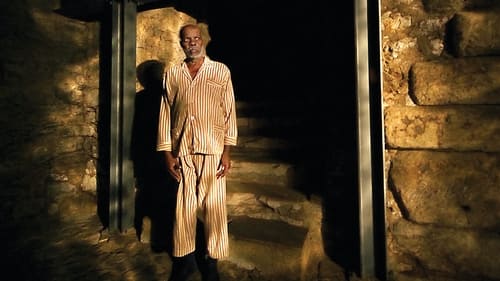
A Cape Verdean woman navigates her way through Lisbon, following the scanty physical traces her deceased husband left behind and discovering his secret, illicit life.

While the young captains lead the revolution in the streets, the people of Fontainhas search for Ventura, lost in the woods.

Ventura
Four voices and their visions of Guimarães, cradle city of the Portuguese nation and European Capital of Culture in 2012.

Ventura
A participant in a coup d'état by young commissioned officers, Ventura loses his way within the woods. Eventually, Ventura is admitted into a mental hospital where he has conversations with "ghosts" of the past in the hospital's elevator.

O Nosso Homem (Our Man) is a short variation in the line of the trilogy Pedro Costa has devoted to the habitants of the Fontainhas quarter, which has been destroyed in the meantime. It can be considered as a sort of appendix to the third part, Juventude en Marcha (Colossal Youth), in which the hero, Ventura, reappears as one of the four characters of this dialogue of hopelessness.

(segment "Tarrafal")
An omnibus project examining, well, the state of the world.

Pedro Costa's segment from "O Estado do Mundo".

(segment "The Rabbit Hunters")
Previously focused on Asian directors, “Jeonju Digital Project 2007” takes a look at Europe. The Portuguese filmmaker Pedro Costa, the German filmmaker Harun Farocki, and the French filmmaker Eugène Green participated in this project.

Ventura
After the Portuguese government demolishes his slum and relocates him to a housing project on the outskirts of Lisbon, 75-year-old Cape Verde immigrant Ventura wanders between his new and old homes, reconnecting with people from his past.





